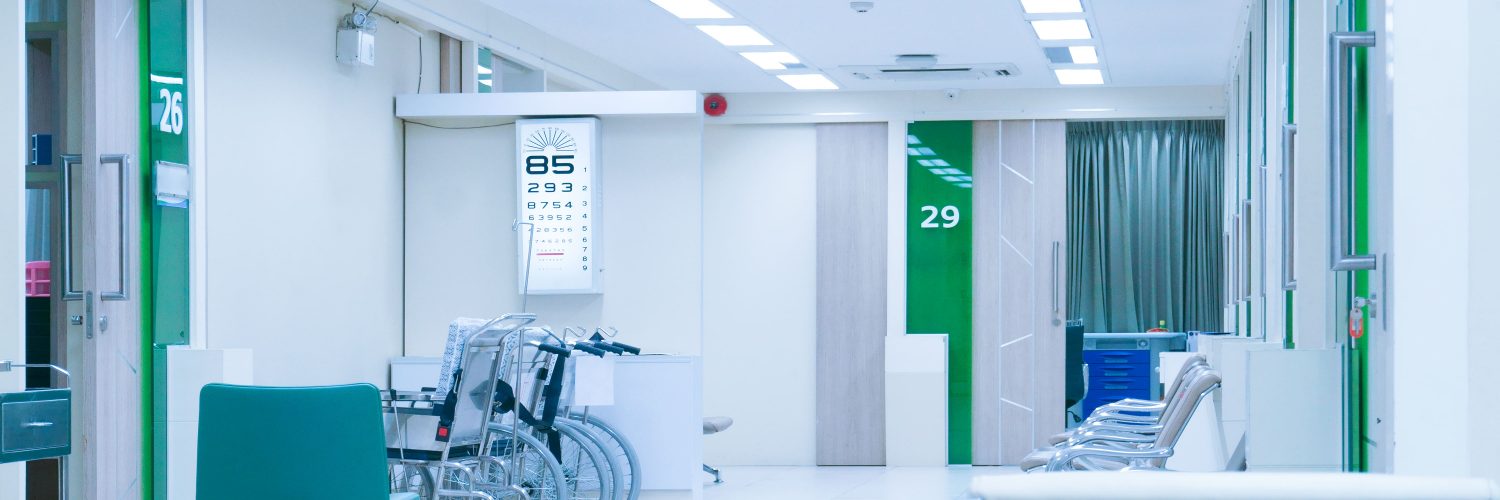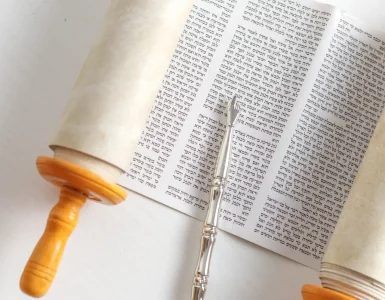There is an obligation Min haTorah to recite Krias Shema twice daily, once in the morning and again in the evening. The Gemara in Brachos (4b)adds:
R’ Yehoshua ben Levi said, “Although one recited Krias Shema in Shul (at night), there is still a Mitzva to recite it in bed”.
R’ Yosi explains that this is derived from the Pasuk in Tehillim (4:5): “Say in your hearts on your resting places, and be silent, Sela.” This is interpreted as: A person must recite Krias Shema (which mentions “your heart”) on his bed, and only then may he “be silent” (i.e., sleep). In addition, Chazal instituted the Bracha of “haMapil” to be said before going to sleep.
In this essay, we will outline several common Halachos of Krias Shema sheAl haMita and Birchas haMapil that are pertinent to ill or disabled people and those who have difficulty falling asleep.
The Nusach
The Shulchan Aruch (O.C. 239:1) records several Minhagim as to which passages of text should be recited in addition to Shema and Hamapil:
He recites the first Parsha of Shema (Devarim 6:4-9) followed by the Bracha, “haMapil Chevlei Sheina Al Einai.” He then says “Yoshev b’Seser Elyon.” (Tehillim 91:1-16); “Hashem Mah Rabu Tzarai” (3:2-9); “Baruch Hashem baYom etc.”; “vaYomer Hashem El haSatan etc.” (Zecharia 3:2); “Hashem Shamrecha etc.” (Tehillim 121:5-8); “b’Yadcha Afkid Ruchi etc.” (ibid. 31:6); “Yevarechecha Hashem etc.” (Bamidbar 6:22-27); and “Hashkivenu” almost until its conclusion.
It is not generally accepted to recite every passage the Shulchan Aruch mentions; each person should act according to his Minhag. The most important additions are “Hareni Mochel v’Solei’ach etc.” and the recitation of Vidui. Kabbalistic sources indicate that there are many transcendent Kavanos in Krias Shema sheAl Hamita.
A person who finds it difficult to recite the entirety of Krias Shema sheAl haMita, should say the first Parsha of Shema and the Bracha of haMapil (Magen Avraham 239:2, cited by the Mishna Berura, ibid 9). The other passages are additions and not obligatory.
Timing
Krias Shema sheAl haMita must be said as close to falling asleep as possible (Rema ibid. and Mishna Berura 3). After reciting it, one may not talk, eat, or drink. This is not an actual Issur; the Mishna Berura (4) rules that if a person feels hungry or thirsty or has something important to say, he may do so but should repeat Krias Shema afterward.
Position
According to the Magen Avraham (5), if a person had recited Krias Shema in Ma’ariv, he may recite Krias Shema sheAl haMita while lying on his side.[1] However, if he has not[2], and he intends to fulfill his obligation, he must sit up to recite it.
Others hold that Lechatchila one must recite Krias Shema either while standing or sitting. See the Pri Megadim (Eshel Avraham 1) who disagrees with the Magen Avraham and Chayei Adam (1:35:1) who rule this way. However, the Sha’ar haTziyun (10) maintains that one should not protest against those who are lenient since most Poskim are lenient in this regard even for the nighttime Shema.
If he is already lying in bed when he wants to recite Krias Shema, everyone agrees that he need not sit up and may just turn onto his side (Mishna Berura ibid. 6).
Insomnia
The Biur Halacha (ibid. s.v. Samuch) rules that a person who goes to bed but has difficulty falling asleep and believes that it may take some time until he falls asleep should not recite haMapil as it may prove to be a Bracha l’Vatala. The Chayei Adam (35:4) disagrees, arguing that even if he doesn’t sleep at all he has not made a Bracha l’Vatala because haMapil is a Bracha instituted according to the Minhag haOlam, like Birchos haShachar. The Elya Raba (ibid. 3), citing the Sheyarei Keneses haGedola (Hagahos haTur ibid. 5), citing the Birchas Avraham (in one answer) similarly contends that haMapil is a Birchas haShevach, based on the Minhag haOlam. It is akin to the Bracha of haNosen laSechvi Binah which a person must recite even if he did not hear the rooster’s crow. This is also implied by the Biur haGra (432), Eshel Avraham (Butshetsh, Mahdura Tinyana 239), Kaf haChayim[3] (ibid. 7), and R’ Ovadia Yosef (Yechave Da’at 4:21). R’ Shlomo Zalman Auerbach (Halichos Shlomo 13:15) states that one should recite the Bracha even if he has difficulty falling asleep sometimes and he should not be concerned about Bracha l’Vatala.
See also the Sefer Hilchos Yom b’Yom[4] (Tefilla, 4:19:18, and footnote 30) who maintains that if someone has gone to bed but feels wide awake, he should not be classified as “going to sleep”, but “going to lie down” and should not say haMapil.
If a person is not going to sleep at all and is just lying in bed, he should certainly not recite the Bracha. Everyone agrees that the Bracha is not entirely analogous to Birchos haShachar as it was only instituted for someone who is “going to sleep” (Halichos Shlomo ibid, Devar Halacha 23).
If a person is on a flight or in the hospital and is unsure if he will be able to sleep but is trying to at least take a nap, should he say haMapil?
The ruling that a person may say haMapil even if he is concerned about not falling asleep presumably applies only when there are no specific obstacles preventing sleep. In this case, since there is an actual impediment to falling asleep, he should recite the Bracha without Shem u’Malchus if he is trying to fall asleep. (I later noticed that the Piskei Teshuvos cites the b’Tzel haChochma who makes the same argument. He adds the qualification that this depends on whether the person estimates that he will be able to fall asleep easily within a half hour.)
After haMapil
As mentioned above, a person may speak, if necessary, after saying Krias Shema sheAl haMita, though he must repeat it just before going to sleep. However, if he said Birchas haMapil, he may not interrupt between the Bracha and sleeping.
However, we must point out that this Halacha is also subject to the Machlokes haPoskim delineated above as to whether the Bracha is simply part of the daily ritual (and therefore would pose no issue of Bracha l’Vatala if he doesn’t fall asleep), which should also mean that he may make a Hefsek, The Ya’avetz (Siddur Ya’avetz, Seder Laila), Halichos Shlomo (ibid. Devar Halacha 24), and Tzitz Eliezer (7:27) similarly state that one may make a Hefsek in a case of absolute necessity or to eat or drink.
The Sefer Zeh haShulchan[5] (2:239) contends that this is also the view of the Gra, though he adds that, if possible, one should try to delay the Hefsek for some time after lying in bed with the intent to fall asleep. The Sefer Hilchos Yom b’Yom (19:20) likewise explains that after lying in bed for a little the Bracha has been Chal, and therefore one may eat, drink, or speak.
If someone recited haMapil and subsequently needed to relieve himself, he should do so. According to the Chazon Ish (Dinim ve’Hanhagos, 9:9), he may not say Asher Yatzar afterward. However, many Achronim disagree, including Shu’t Hisorerus Teshuva[6] (1:128), Shu’t Pri haSadeh[7] (1:93), Tzitz Eliezer (7:27), and Halichos Shlomo (ibid). R’ Shlomo Zalman adds that the same applies to the Brachos on thunder or lightning. According to the Sefer Hilchos Yom b’Yom, one should lie in bed for a while after going to the bathroom, then say Asher Yatzar. (This discussion is also dependent upon the Machlokes mentioned above.)
Yet another Halacha dependent on the above Machlokes relates to one who recited Krias Shema and Birchas haMapil, fell asleep, woke up, and now wants to go back to sleep. According to the opinion that the Bracha is recited when one goes to sleep, he must recite it again. According to the other opinion, since he has already recited the Bracha as part of the Seder Hayom, he has fulfilled his obligation and may not repeat it. The Ketzos haShulchan[8] clearly states this second opinion (27).
Similarly, the Mekor Chaim[9] (239) rules that one who is about to go to sleep and then realizes that he has not yet davened Ma’ariv, said Kiddush Levana, or counted the Omer, may do so even after haMapil.
It is very common for elderly or unwell people to fall asleep without having said haMapil and Krias Shema and to suddenly awaken in the middle of the night. When they go back to sleep, they should wash their hands and say haMapil and Krias Shema.
Time for the Bracha
The Bracha of haMapil is recited only at night, and not if one goes to sleep during the day. This applies even if one goes to bed just before Shkia and intends to sleep the entire night.
However, there is a disagreement among Mekubalim as to whether haMapil is said after Chatzos haLaila. The Kaf haChayim (239:8) discusses this in detail and concludes that it is apparent from the words of Rav Chaim Vital that one should not recite it after Chatzos and that this was the custom of the Yerushalmi Mekubalim (with the exceptions of Friday night during the Omer and Aseres Yemei Teshuva, when they would say it without Shem u’Malchus.) This is also the opinion of the Chavos Ya’ir (4:21), due to the principle of Safek Brachos l’Hakel. However, some rule like the Chida and people should follow their Minhag.
[1] The Mishna Berura and Sha’ar haTziyun imply the same.
[2] [Editor’s note: This would also apply to one who davened Ma’ariv before Tzais haKochavim and is obligated to repeat Krias Shema.[
[3] R’ Yaakov Chaim Sofer zt”l (1869-1939) of Baghdad and later Yerushalayim
[4] R’ Moshe Mordechai Karp shlit”a of Modi’in Ilit
[5] R’ Srayah Dublitzky zt”l (1926-2018)
[6] R’ Shimon Sofer zt”l (1850-1944), son of the Ksav Sofer and grandson of the Chasam Sofer
[7] R’ Eliezer Chaim Deitsch zt”l of Bonyhád, Hungary (1850-1916)
[8] R’ Avraham Chaim Na’eh zt”l (1890-1954)
[9] R’ Ya’ir Chaim Bachrach zt”l (1638-1702), author of the Shu”t Chavos Ya’ir













Add comment